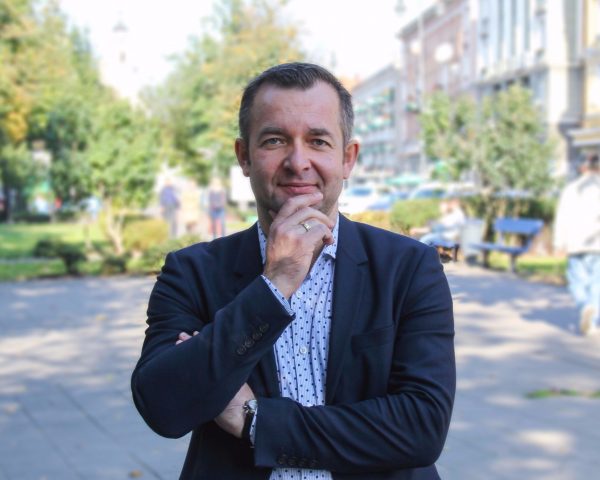Center of European Studies
European Studies Centre plan of activities for 2025-2028
The European Studies Centre has been in operation since 2018, when it replaced the Chair of of European Studies. During those seven years, it has been a platform for the Institute’s researchers working in the field of European (primarily EU) studies, for discussions about their individual research initiatives, and for collective studies reflecting on Lithuania’s membership in the EU and the problems of the EU’s public policy and institutions.
European studies are regional studies that recognise the importance of Europe, primarily the EU, but also Lithuania’s relations with other European countries, politics, public policy and institutional changes in the EU and its member states. The importance of these political processes and their analysis has been further strengthened by the ongoing geopolitical upheavals – the largest military conflict since World War II, i.e. Russia’s unprovoked war against Ukraine, and the changing attitude of the US administration towards transatlantic relations and European security.
These changes, which are equivalent to the end of the Cold War and the reunification of Europe that began after it, increase the need to investigate their causes and consequences for Lithuania and our region. As a result, the demand for European studies and research is high. The institute employs researchers of various profiles and academic experience, who have analytical skills and experience in this field and can contribute to the implementation of the institute’s mission from the perspectives of international relations, comparative politics and policy analysis, political philosophy, political economy and other perspectives. The aim of the Centre should remain to mobilise these researchers and lecturers by supporting interdisciplinary research, providing space to test their academic ideas, coordinating joint academic work and involving young researchers.
Taking into account the European policy agenda – the demand for research and the profiles of the institute’s researchers – it will be important to analyse the following topics:
- European security and defence, including the EU’s geopolitical role and its contribution to strengthening the defence of European countries, the formation of ‘coalitions of the willing’ and the development of flexible cooperation with non-EU NATO countries;
- an analysis of the EU’s enlargement and public policy and institutional and decision-making reforms, including the EU’s relations with Ukraine and other candidate countries, the future multiannual budget and Lithuania’s interests;
- Research on national and European identities, the impact of political polarisation on cooperation in EU institutional formats, leadership in EU and European countries;
- Analysis of the EU’s relations with the United States and other world powers, relations with different regions of the world and changes in interdependencies.
The individual initiatives of the institute’s researchers on topics close to their academic interests and the ideas on joint academic activities are welcome.
According to the regulations for the activities of departments and centres approved by VU TSPMI, the main tasks of the European Studies Centre are:
- to conduct significant interdisciplinary research in European studies, creating new scientific knowledge together with researchers from Lithuania’s and foreign research centres and disseminating it through joint publications;
- to disseminate research results to both national and international academic community, by participating in various scientific networks, events and projects, in cooperation with Lithuanian, EU and other institutions and media;
- to educate specialists in European studies by involving the students of European Studies (ARQUS MA program), PhD students and other young researchers.
The proposed directions of activities and the results to be achieved in 2025-2028:
- to consider and agree within the research community of the European Studies on which research topics and forms of collaborative work would be relevant and would contribute to support and provide feedback to individual research initiatives;
- to continue the discussion of the progress of PhD students working on European studies and to provide feedback that would help to successfully complete their studies (to organize discussions of the dissertations according to the schedule of PhD studies);
- attraction of new promising researchers (master students, PhD students, postdocs) in order to strengthen the capacities of Institute’s researchers in the field of European studies and to look for opportunities to be included in new research initiatives (in the next three years to seek to accept 2-3 new PhD students of European studies);
- to initiate new academic research within European studies in Lithuania and to expand cooperation (networking) with researchers in other European countries by preparing joint academic publications and science for policy type comments (to prepare at least 1 new project proposal for international or national research programmes within three years, to publish 4-5 academic texts in international publications (journals with high IF and collective monographs of recognized publishing houses, 4-5 European commentaries in English);
- to support the involvement of the Centre’s researchers in the activities and events of international networks, such as the events of the German-Nordic-Baltic Forum, TEPSA conferences, to use the TEPSA PPC in Vilnius, which is dedicated to the Lithuanian Presidency of the Council of the EU in 2027, which will take place in autumn 2026, membership in the European Council on Foreign Relations, etc. (participation in 5-6 international conferences or discussions);
- to regularly comment on European affairs in the media in Lithuania and abroad, preparing analytical comments (30 comments to be published).








